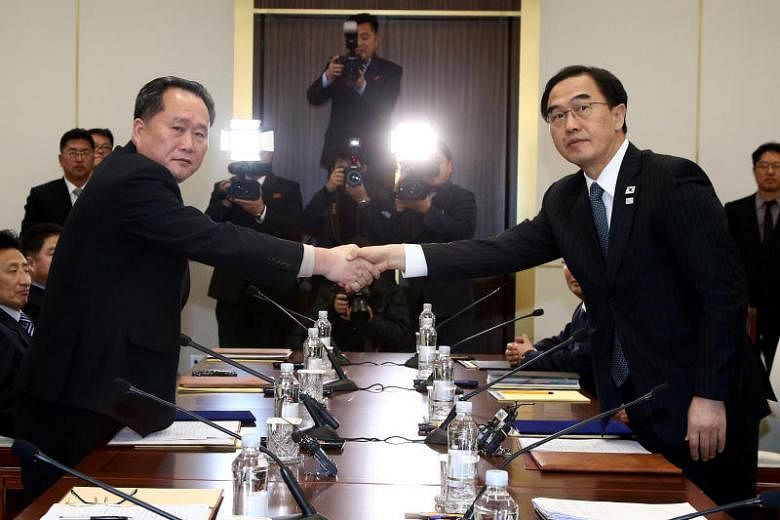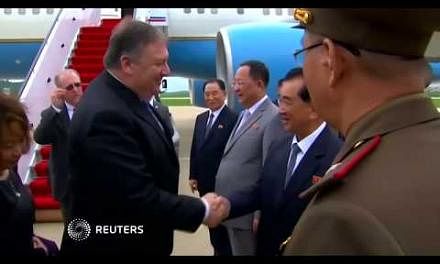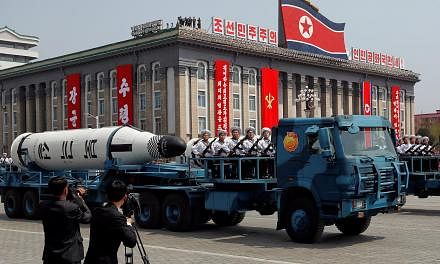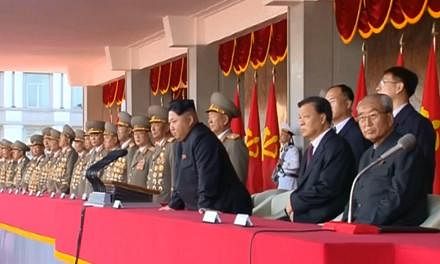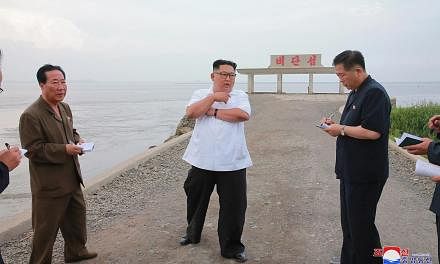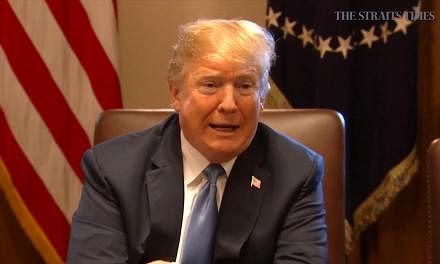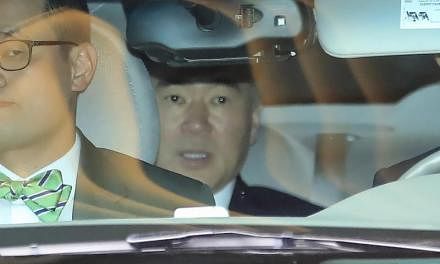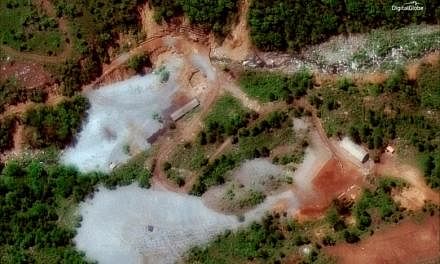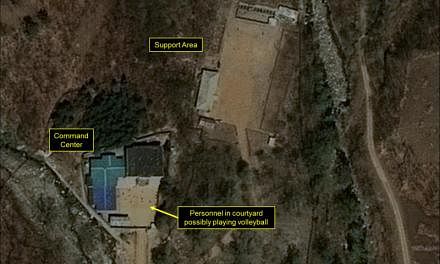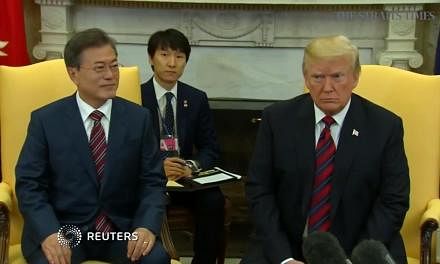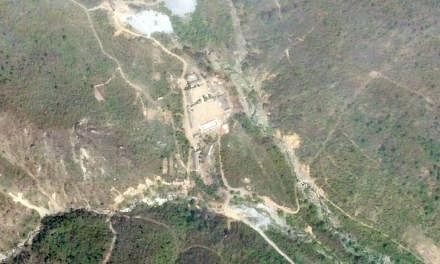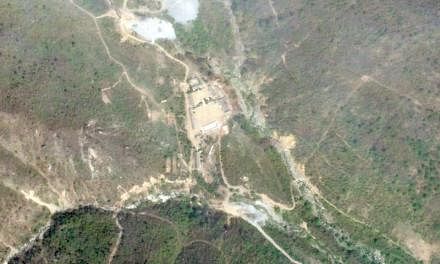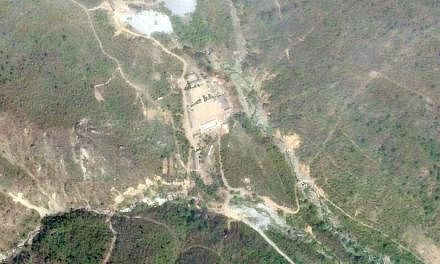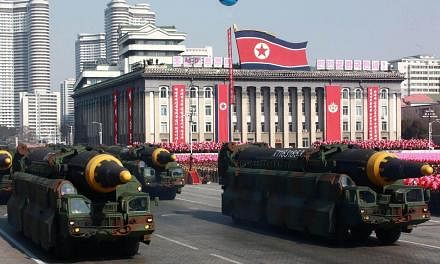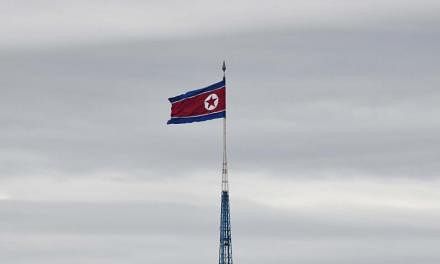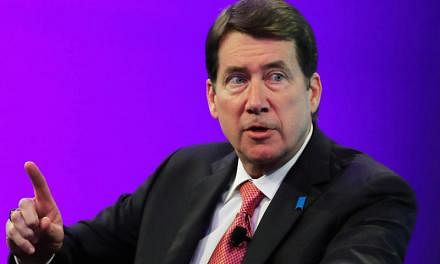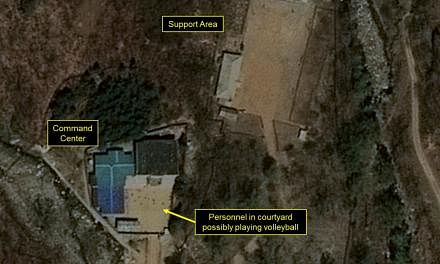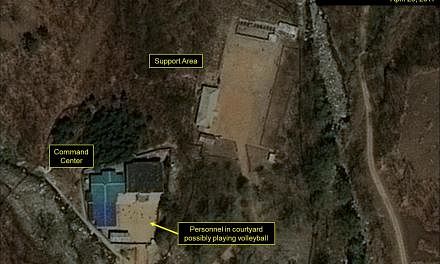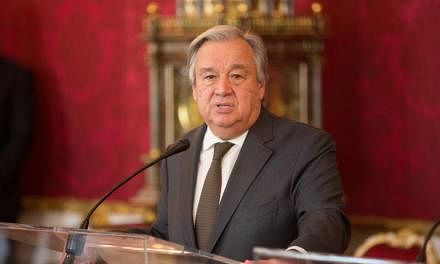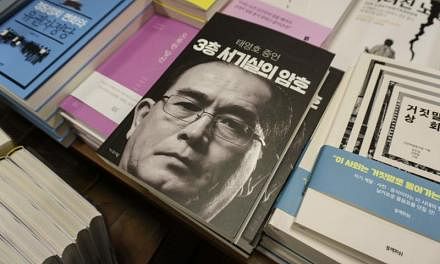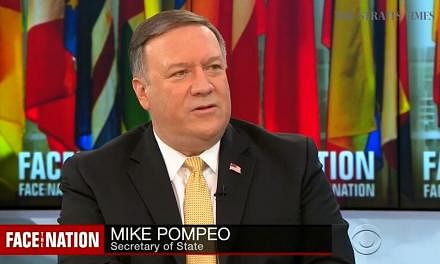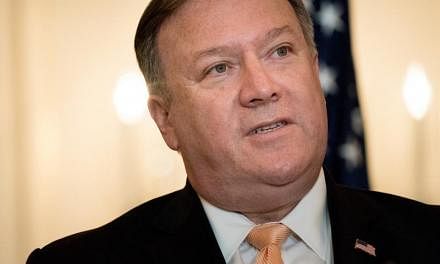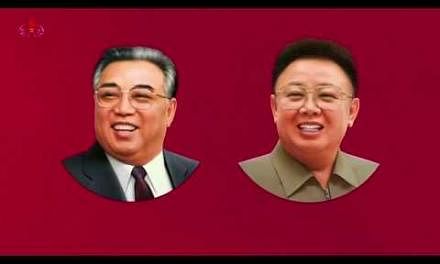SEOUL - The two Koreas took a step forward in improving ties after resuming talks over the Winter Olympics, with both sides displaying eagerness and sincerity for positive results.
North Korea confirmed its participation in the Olympics, while the South indicated it would consider lifting some sanctions temporarily to allow the North's delegation to travel to the alpine country of Pyeongchang, where the games will be held next month.
Both sides even agreed to hold military talks in the future to ease border tensions, according to a joint statement, although they disagreed on South Korea's proposal to hold a reunion for families separated by the 1950-53 Korean War.
Analysts said the talks - the first in two years - were productive but stopped short of signalling a change in North Korea's nuclear stance, or its willingness to return to the negotiating table for talks to dismantle its nuclear arsenal.
The regime, bent on developing a nuclear-tipped intercontinental ballistic missile (ICBM) capable of striking the United States mainland, declared its nuclear programme complete after firing its biggest and most powerful ICBM on Nov 29.
Despite its peace offensive towards South Korea, the North remains aggressive towards its sworn enemy, the US - evident in Mr Kim Jong-un's warning of a "nuclear button" on his desk.
Dr Bong Young Shik of Yonsei University's Institute for North Korean Studies told The Straits Times that North Korea will need to "sweeten the deal" by at least declaring a moratorium on testing, in order for broader talks with the US to take place.
"The Trump administration can justify giving the green light to negotiations with this abhorrent regime as long as the regime promises not to engage in another provocation during negotiations. Then Mr Trump could say, 'See, North Korea has succumbed to pressure, I'm just an excellent negotiator."
Dr Graham Ong-Webb, research fellow at the S. Rajaratnam School of International Studies, said North Korea can afford to defer testing as it is nearing the end of its nuclear programme, lacking just tests in re-entry technology.
He noted that if the regime makes good on its Olympic participation, it would have to suspend testing from now until mid-March, when the Paralympics end.
"Testing will become an non-negotiable deal-breaker in 2018. If Pyongyang can continue its moratorium on testing for a significant part of 2018, the ball will be in Washington's court to invest in dialogue," he told ST.
The talks yesterday were a culmination of friendly gestures from Pyongyang since Mr Kim extended a New Year's Day overture to send a delegation to the Games. The move has fuelled hopes for reconciliation, even though experts warn it is a ploy by the North to drive a wedge between South Korea and its main security ally America.
Dr Bong said North Korea's turnaround is a sign that the regime is being squeezed hard by the toughened economic sanctions imposed by the United Nations Security Council. He noted that the North Korean leadership has a history of agreeing to inter-Korean dialogue when facing "extremely challenging situations".
"They only turn to South Korea when they are desperate, like a bad relative who never sends Christmas cards but when he runs out of money, he suddenly claims he's your uncle."
Some experts warned that North may steal the limelight at Pyeongchang and take credit for a successful Olympics, but Dr Go Myong Hyun of The Asan Institute for Policy Studies think-tank said the pro-rapprochement South Korean government is not opposed to North Korea "taking advantage of this opportunity to have a coming-out party".
"South Korea will be more than happy to set the stage for that," he told ST.
Dr Ong-Webb, however, cautioned that South Korea has to be careful what it wished for.
"Joint parade marches, cheerleading teams and performance troupes are great. The risk is in competitive events. Unfairly or not, anything that puts North Korea in a weaker light, will be put squarely on Seoul as host and kin."

